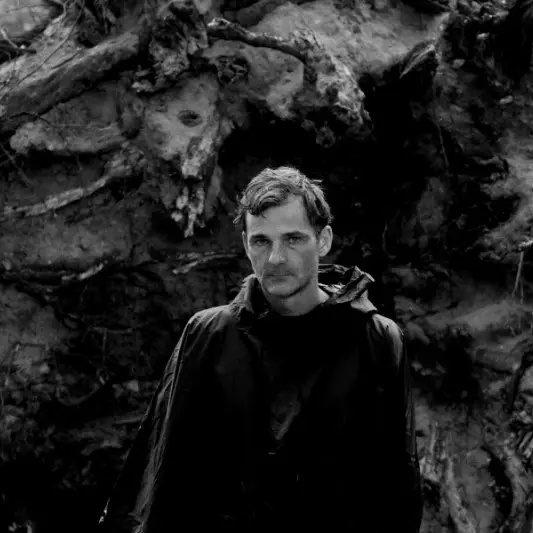The recording process of “At The Crest” ” was all about finding an intuitive and natural expression, hopefully tapping into an aesthetic of some kind of archetypical raw power. It’s about embracing complexity with no resolutions, and the consequent discomfort of unfamiliar emotions.”
The eight-track album was written over a period of four years so as to allow for complete freedom of expression and exploration. Colstrup found himself free from the deadlines of his usual scoring work as a soundtrack composer, so he was able to dream big and go wherever the music took him, while also exploring a grander emotional complexity. The pandemic also impacted the album and made it clear to the artist that “no matter what we do, we are one species and at one with nature, where destruction also creates new life. There is no good or evil as we see it in Western society, and everything has equal importance whether big or small.”
This is reflected in the record, where both grand sweeping chords and minute keys all play an equally vital role. The pandemic restrictions also brought their own issues, such as having to make remote recordings of an orchestra in Budapest with conductor Peter Pejtsik. Choir parts were recorded in The Garrison Church by Paul Hillier’s Grammy Award-winning Theatre of Voices. Meanwhile, solo violin parts were performed and recorded remotely in Iceland by the great Viktor Orri Árnason. Woodwind parts by Bon Iver collaborator Anders Banke and solo soprano parts by Else Torp – who sang on Nick Cave’s 2016 album Skeleton Tree – were recorded in Colstrup’s studio. All this added extra complexity to the final studio process: sessions were sent back and forth across Europe so everyone could tap into a collective performance, which was then finally and masterfully mixed by August Wanngren in Copenhagen.
Despite these challenges, “At The Crest” is a triumph that’s epic in scale yet intimate in emotion. Its quiet artistry and neo-classical elegance shine through as tracks slowly shift and moods close in while you barely notice. That in itself is a metaphor for life in which the slow passing of time brings about grand changes in a subtle fashion. The opener ‘Rain From A Blue Sky’ is full of hope, the title track has a more uncertain atmosphere, and ‘Two Seas’ keeps you in gentle suspense. The sheer size of ‘In The Mountains’ leaves you in awe, and ‘Limfjordståge’ is both delicate and devastating. Clouds seem to break as rays of optimism shine through on ‘Continuum,’ and ‘Dark Planet’ is heavy and introspective before closer ‘Two Suns’ builds to a grand and comforting crescendo that then casts you adrift and alone in the world once more.
ABOUT JONAS COLSTRUP
Colstrup is an accomplished composer, musician and producer who has mostly written for film. He has released several soundtrack albums, including two with the late Jóhann Jóhannsson. He also recently scored Tigers, a true-life tale about Swedish footballer Martin Bengtsson. In 2017, Jonas put out his only solo album, Between Sound And Silence, which struck a balance between classical and contemporary music in a brilliantly meditative fashion.
